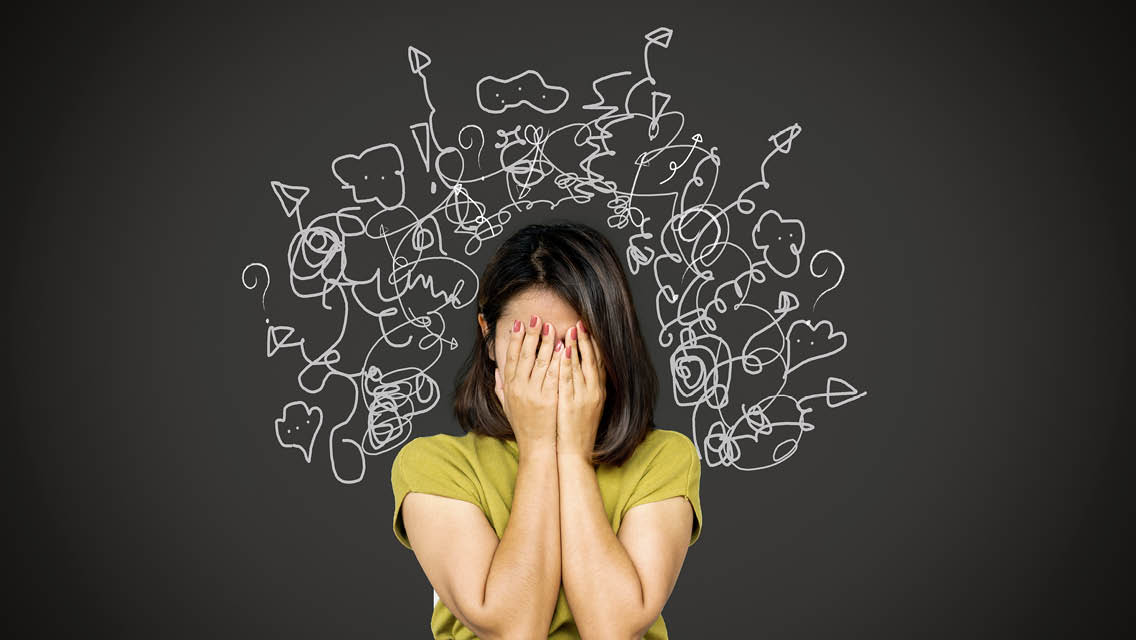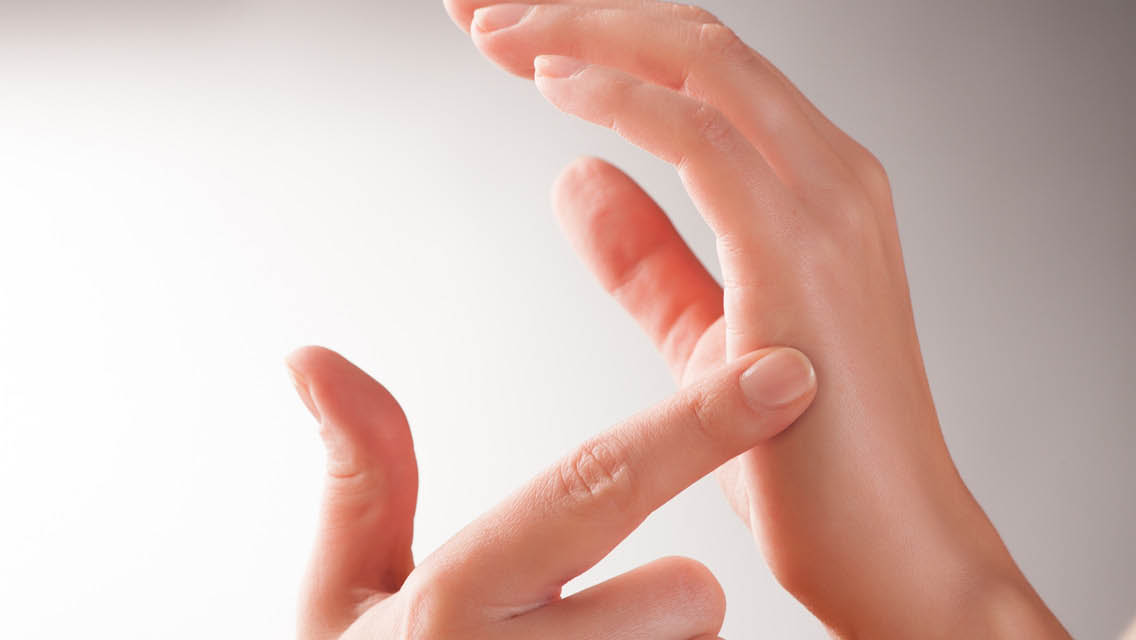The most amazing — and dare I say miraculous — thing has happened to me: I finally stopped pulling out my hair.
For the past 20-plus years I’ve suffered from an odd disorder. It started when I was a child — I liked to twirl my hair and suck my thumb. Like most kids, though, I quit sucking my thumb; however the twirling continued into high school, when it took on another, more disturbing form.
I was sitting in algebra class, hand in my hair, and found an odd strand. It had a different texture and didn’t quite belong. So, pluck! Out it came.
The hair pulling started fairly slowly from that point on: An odd hair plucked out here, and another one pulled out there.
And then college came, along with an amazing amount of anxiety. I found myself pulling more regularly and soon noticed a bald patch forming in a “hot spot” (which happened to be my bangs at the time).
I had no idea why I pulled my hair out and was extremely frustrated by it. People would frequently tell me to just stop, or worse, swat my hand away from my head and tell me to knock it off.
The pulling, along with the “helpful suggestions,” went on for years. Then one day a word and its definition popped up on my Merriam-Webster screen saver: Trichotillomania.
It was as though a whole new world had opened up. There was a name for what I was doing — and I wasn’t alone.
A Breakdown of Trich
Trichotillomania is pronounced trik-uh-til-uh-may-nee-uh and is called trich for short. The word is broken out as follows:
- trich = hair
- till = pull or pluck
- mania = madness/frenzy/love
It basically means that someone with this disorder “loves” to pull out their hair.
Trich falls into the spectrum of an obsessive-control disorder, but is classified as an impulse control disorder. It affects about 3 percent of the female population and about 1.5 percent of the male population. Doctors don’t quite know what triggers it, and there is no known cure.
Trichsters (a nickname for ourselves) pull out everything from eyelashes and eyebrows to pubic hair to large patches of hair from their heads. Some people will also bite off the bulb of the hair or eat the entire strand (which leads to another more complex disorder, trichophagia).
Some trichsters are so obsessed with pulling their hair out that they will sit for hours simply pulling. The disorder can have a major affect on their work and social life.
I’m a lucky trichster: I have one smallish hot spot on the side of my head that takes the brunt of my pulling and the disorder doesn’t interfere with my daily life. It can, however, be rather embarrassing. There’s the constant need to have my hand in my hair, which can make professional situations a little awkward, for instance.
For those with severe trich it can be worse, given the visible affects of missing large patches of hair on the head or missing eyebrows or eyelashes.
Solution Seeking
Once I found out that my odd compulsion had a name, I started researching the condition in an attempt to overcome it. I tried many things:
- Behavioral therapy (putting the pieces of hair into an envelope and counting them, which didn’t work for me)
- Hypnosis ($350 later and no results)
- EFT or tapping
- Meditation and prayer
- Wearing gloves
- Sitting on my hand
- Playing with a koosh ball (a distraction technique)
- Participating in a research study at the University of Minnesota
- Taking N-Acetly-Cysteine (NAC), a supplement that has been found to have decent results for some trichsters (taking two to three pills three times a day was a bit much for me, though).
I’ve wished the disorder away countless times, always wondering, “Why do I have this crazy disorder?” I get angry with myself and swear I’ll never pull another piece. I tell myself, “I’m done, that was the last pull,” only to pull again five minutes later.
Every once in a while my compulsion will come on extra strong. I’ll end up pulling a few strands out at a time and, subsequently, get really angry with myself. When this happens, I go online to see if there’s anything new on the subject.
A Declaration of Independence
During a recent episode that left me with four strands of hair between my fingers in one quick yank, I went online to see if there was anything new on trich. I stumbled upon an article by another trichster (unfortunately I can’t find the article to link back to, so my apologies).
The author wrote about how she had participated in Acceptance and Commitment Therapy (ACT). ACT is a psychological intervention that uses acceptance and mindfulness to increase psychological flexibility.
The ACT therapist told the author that she needed to take control of her impulses — they were in her control. (Really? If they were in our control then we wouldn’t pull.)
The author needed to sit with the sensations she was having and not pull (if you’re not a trichster, imagine a fly landing on your bare arm and not swatting it away — stressful, right?!). As she was sitting with the urge to pull, the author was instructed to say five simple words:
“I don’t do that anymore.” (Seriously? Just like that. No putting hairs in envelopes or tapping?)
So, I decided to try those five simple words, inserting “pull my hair” in place of “do that.”
I sat with an urge to pull, and didn’t pull. And when the next urge came, I sat with that urge again and thought, “I don’t pull my hair anymore.” I didn’t pull. And then the next urge came, and I thought “I don’t pull my hair anymore.” And so on.
And you know what? I don’t pull my hair out anymore.
I do still play with my hair and have the compulsion to pull, but when the urge presents itself, I come back to the phrase “I don’t pull my hair anymore.” I’ve even gone an entire day without an urge to pull!
I’ve been pull free for over three weeks now. It’s truly amazing and wonderful, and I consider it a miracle since I’ve wished for decades to be rid of this disorder.
Those five little words are like the golden ticket for me — a declaration of independence, if you will. It’s not a wishy-washy wish, or a statement filled with anger or frustration directed at myself. There’s empowerment and control conveyed in that simple phrase.
I share this simple phrase and story with you because I hope it can help you, or someone you know, stop something that they’ve “wished” away for years.
Whether the “do that” of the phrase is “eat chips,” “bite my finger nails,” “eat second desserts,” “smoke,” “swear.” Whatever that “urge” is for you, I sincerely hope the power of your language can help you take control of it.
(For more information and resources about trichotillomania, please visit trich.org.)
TELL US: What behavior have you been struggling to overcome? Share your thoughts in the comments below or tweet us @ExperienceLife.
Image via Trich.org




This Post Has 0 Comments